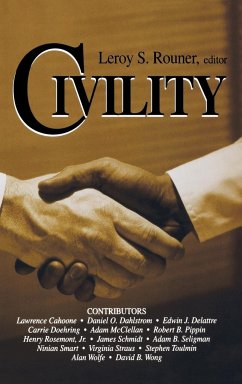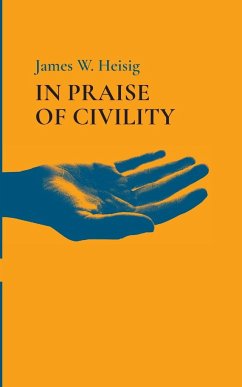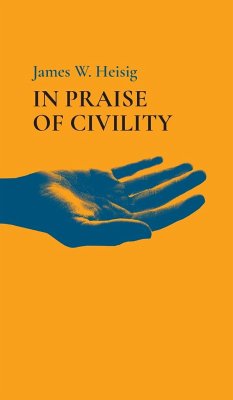Are Americans less civil than they used to be? If so, is that a bad thing? Perhaps we are just learning to be more honest. And what does civility mean? Is it just good manners? It so, perhaps it is only the complaint of privileged classes, annoyed that taxi drivers are increasingly rude and that men no longer give up their seats to women on public transportation. Or is civility a question of morality? The philosopher Peter Bertocci once argued that promptness is a fundamental form of social justice. In this lively conversation on an increasingly significant theme, major philosophers and religious scholars argue the issue on three levels. The first is manners: Henry Rosemont argues the Confucian case that manners are the substance of social relations, while Edwin Delattre and Adam Seligman believe that the issue is deeper than that; and the sociologist Alan Wolfe is persuaded that we are not less civil or ill-mannered than our predecessors. Secondly, as a social issue, James Schmidt, Lawrence Cahoone, and Adam Seligman turn to questions of structure and meaning in a civil society; Ninian Smart, David Wong, and Virginia Straus put the issue in a cross-cultural context; and Carrie Doehring warns that civility may be a barrier to honest Communication in family life. Finally, the metaphysical and religious dimensions of civility are explored by Robert Pippin and Adam McClellan. There seems to be a consensus that the lack of civility is, indeed, an increasing problem, that it is more than a class issue of manners, and that its current loss is troubling for contemporary society.
Hinweis: Dieser Artikel kann nur an eine deutsche Lieferadresse ausgeliefert werden.
Hinweis: Dieser Artikel kann nur an eine deutsche Lieferadresse ausgeliefert werden.








